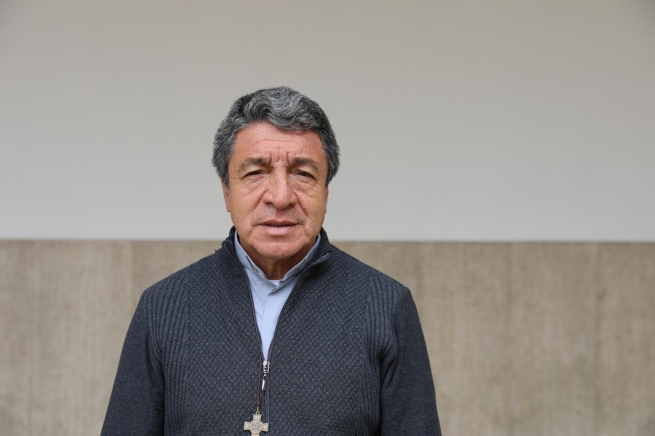Born in Loja in December 1957, he met the Salesians through the Cristo Re parish that his family attended when he was little. He entered the Salesians at the age of 12 in the aspirantate. "But at the time I had no intention of going to work in the missions, also because I did not yet know what it meant to be a missionary" he says today.
However, it did not take him long to find out: in fact, after some experiences of service in summer activities with young people, during the practical training phase his Provincial sent him among the Shuar natives, where he remained for three years.
After spening time in another indigenous mission in Bomboiza, he arrived in Taisha, where the Salesians were looking after 64 indigenous communities. "There were only two of us to take care of it: I looked after 34 of them and there was another missionary, Fr Roldofo Toigo, originally from Italy. He saw to the remaining 30. After 3 years, however, he died in an accident and I had to take care of all 64 of them. And I stayed there for nine years, in total" he says.
Rector and Economer for 8 years, including in the Yaupi mission, he returned again in 2017 to Taisha, and since 2018 has been in Bomboiza, serving young indigenous people as Rector and Parish Priest. "But I have already been there for six years, the project I was following has ended, so the Provincial intends to entrust me with a new challenge" he says.
Among the Shuar he did not limit himself to educational and pastoral work: he learned a lot first and now he knows cultures, symbols, rituals well. “For them, for example, Baptism has great meaning, while they do not deeply understand the value of Confirmation. And marriage has very original rites: when a man marries a woman, he is granted permission to sit on the chimbí, the chair reserved for the head of the family".
However, there is no shortage of pastoral difficulties there either. "Sometimes some marriages do not last long; and as for the Salesians, in 100 years of work among the Shuar, we have only had two priestly vocations" says Fr Loaiza, who also cares about the local culture which is in danger of being lost. "There is a danger that culture will be lost. Currently, young people speak more Spanish than local languages." In this regard, however, the Salesian commitment is strong: "In the mission we cultivate Shuar literature, say Mass and pray in Shuar".
In conclusion, offering the other members of the course the legacies of his missionary experience, Fr Loaiza stated that "In the mission we must be willing to learn: it is necessary to have openness of mind and heart. We cannot go with the presumption of those who believe they know everything". And again: "The big secret is taking care of your spirituality as another important aspect. Without this we run the risk of becoming discouraged, because perhaps we expect immediate results, which we do not see".



